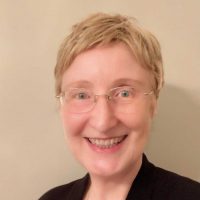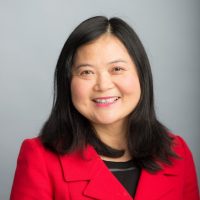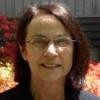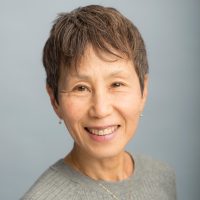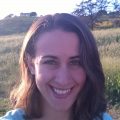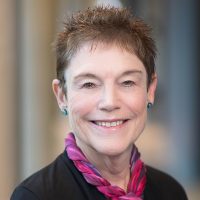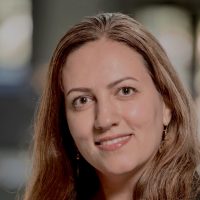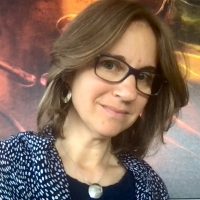Our TESL program offers TESL Certificate, TESL Diploma, and graduate (Master’s and PhD) studies. TESL Certificate program has two options: TESL Coursework Certificate (12 credits) and TESL Certificate with Practicum (15 credits). They are designed for pre- and in-service teachers and those who are interested in teaching local and international students in Canada or overseas. TESL Diploma program (30 credits) is offered for teachers interested in teaching ESL in BC schools or other settings. The TESL graduate program offers MEd, MA, and PhD degrees. We also offer On-Campus or Fully Online options for the MEd TESL program. Integrating research and practice, our TESL programs offer professional development to teachers of ESL and prepare researchers and leaders in this field.
TESL Certificate and Diploma students gain experience and understanding in such areas as: instructional methodology, curriculum design, second language assessment, second language acquisition, language socialization, and intercultural communication. TESL graduate students gain experience and understanding in such areas as: current issues in TESL theory and practice, second language acquisition, second language reading and writing, language socialization, language and identity, second language assessment, discourse analysis, critical applied linguistics, and research methods.
We also offer a fully online MEd program designed to develop outstanding professionals in the field of TESL. Learn more about the program here.
Teaching in B.C. Schools: Students who wish to teach English to ESL students in the public school system (K-12) must hold a BC Teaching Certificate.
Certificate in TESL
There are two types of TESL certificates: the TESL Coursework Certificate and the TESL Certificate with Practicum.
To receive the 12-credit TESL Coursework Certificate from the Department of Language and Literacy Education, a student must complete LLED 489 (6 credits) and LLED 478 (6 credits).
To receive the 15-credit TESL Certificate with Practicum, a student must complete LLED 489 (6 credits), LLED 478 (6 credits) and LLED 399 (3 credits).
Note that we offer LLED 489A (3 credits), LLED 489B (3 credits), LLED 489C (6 credits; a combination of LLED 489A and LLED 489B), LLED 478A (3 credits), LLED 478B (3 credits) and LLED 478C (6 credits; a combination of LLED 478A and LLED 478B). Students are recommended to take LLED 489 prior to taking LLED 478. They are also recommended to take LLED 489A prior to LLED 489B. To take LLED 399, students must have completed six credits of LLED 478 or have completed 3 credits of LLED 478A and be taking LLED 478B as a corequisite. Note that LLED 399 (optional practicum) is only available in Winter Session Term 2 from January to April.
The target learners include the following groups:
- School teachers who want to be certified to teach ESL
- Education students in the process of getting their bachelor degree
- Students in their third or fourth year of university study
- Other unclassified local or international students who wish to teach in colleges or private language schools in Canada or overseas
Student Admission Criteria
- Students who wish to enroll in the certificate program must have obtained their first degree or must currently be in their official third or fourth year of university study.
- Applicants who speak English as a second language and have not previously been enrolled at UBC or another Canadian university must demonstrate English language proficiency to meet UBC’s English language requirement (UBC’s English Proficiency Requirements). Please consult with the admissions office.
- All students, especially those without ESL/EFL teaching experience, are strongly advised to volunteer in an ESL setting prior to enrollment.
Application
Admissions for Diplomas and Certificate programs are handled by the Office of Professional Learning. See the OPL website for application procedures. For program advice and other questions, please consult with the admissions office.
Application deadline: Applications are accepted throughout the year. It is recommended that students submit their application at least one month prior to their anticipated start date. Please refer to the application form for the deadlines to apply.
Certificate Requests
The TESL Certificate Program with Practicum offers professional training and development to teachers of ESL and prepares them for graduate studies. To receive the certificate for this 15-credit program, a student must complete: LLED 489 (6 credits), LLED 478 (6 credits), and LLED 399 (3 credits).
To request proof of completion of the Certificate program, please use the Workday Student portal. For further assistance, contact the Teacher Education Office.
For important application information, dates, and deadlines, please see the SSC website: students.ubc.ca/enrolment/graduation.
Course Offerings
See course offerings below. Note that LLED 399 (optional) is only available in Winter Session Term 2 from January to April. To take LLED 399, students must have completed six credits of LLED 478C or have completed 3 credits of LLED 478A and be taking LLED 478B as a corequisite.
| Term | Courses |
|---|---|
| Summer (May) | LLED 489A (3) |
| Summer (June) | LLED 489B (3) |
| Summer (July) | LLED 489C (6) |
| Summer (August) | LLED 478C (6) |
| Winter I (Sep – Dec) | LLED 489A (3), LLED 478A (3) |
| Winter II (Jan – Apr) | LLED 489B (3), LLED 478B (3), LLED399 (3) |
Note: Course offerings are subject to enrollment
Practicum (LLED 399)
LLED 399 comprises 39 hours of teaching, learning, and reflection. The practicum itself involves 10 hours of observation time and 10 hours of teaching. For each student, there will be a 4-hour pre-practicum orientation with the advisor/instructor and the sponsor teacher. The associated campus-based classes will comprise 9 hours of pre-practicum workshops and 6 hours of post-practicum workshops.
Criminal Record Checks for Students Engaging in Practicum
The Criminal Records Review Act (“CRRA”) requires that UBC conduct a CRRA criminal record check (“CRRA Check”) of all students who work with children (19 years or under) as part of their practica. Students who wish to take LLED 399 and do a practicum in schools with children rather than in colleges with adults should perform CRRA checks before taking the relevant practicum.
To get CRRA checks done, students need to
- Verify your identity in person with two pieces of ID, and at least one being government issued and shows the student’s name, date of birth, signature and photo (Driver’s License preferred). Fill out Driver’s License number on the consent form if that is what is used for ID.
- Complete and sign a “Consent to the Criminal Record Check” form.
- Forward a copy to the CRRP with appropriate payment.
More information regarding payment options and application processes is available at Ministry of Justice Website
The CRRP will determine whether a student poses a risk and will advise UBC of its decision.
Teaching in B.C. Schools
Students who wish to teach English to ESL students in the public school system (K-12 or adult education) must hold a B.C. Teaching Certificate. A teaching certificate is usually not necessary for those who wish to teach adults in the private sector (i.e. community centres, private businesses, etc.).
Courses
Both LLED 478 and LLED 489 are distinguished into the A, B and C sessions. While the C sessions are 6 credit courses, the A and B sessions are 3 credit courses. The A session covers the first half and the B session covers the second half of the C session. Students are recommended to take LLED 489 before LLED 478 and to take LLED 478A before LLED 478B.
Description
LLED 399 is required of all students wishing to gain the TESL Certificate with Practicum. Excellent oral proficiency in English is required for the teaching practicum. It requires:
- To complete a 20-hour practicum (10 hours of observation and 10 hours of practice teaching) in classes of ESL children or adults under qualified supervision.
- To attend a pre-practicum orientation with the advisor/instructor and the sponsor teacher (about 4 hours).
- To prepare for the practicum in campus-based pre-practicum workshops (3 hours a week in the first 3 weeks).
- To reflect on the practicum experiences in campus-based post-practicum workshops (3 hours a week in the last 2 weeks).
Assessment in LLED 399 (pass/fail) is based on a combination of a successful completion of the practicum and a comprehensive portfolio of experiences, both in school and in workshops, prepared by individual students.
Description
LLED 478A aims to apply linguistic insights to effective lesson/unit planning in teaching English as a second/foreign language.
Objectives
Students will:
- Demonstrate knowledge of phonology, syntax, meaning, and discourse in their application to the ESL classroom.
- Demonstrate a range of techniques related to the skills of listening, speaking, reading and writing which promote language learning
- Promote communicative competence by contextualizing teaching points
- Prepare lesson and unit plans for a particular class that will show focus, variety, integration, expansion and balance
- Relate the main current methods of language teaching to their underlying assumptions and to instructional choices
Content
- Introduction/Teaching a Lesson: Learner profiles; needs assessment and lesson planning for increasing communication and interaction
- Curriculum and Unit Planning: Models and approaches; language and content learning; using the environment to augment learning; assessing and adapting materials
- Teaching Communication Skills: The Multi-level classroom; teaching reading, writing, listening and speaking, vocabulary and grammar; integrating skills
Teaching Experience
All students, especially those without ESL/EFL teaching experience, are strongly advised to volunteer in an ESL setting prior to enrolling in LLED 478A.
Description
LLED 478B expands application of linguistic insights to effective assessment and cultural understanding in teaching English as a second/foreign language.
Objectives
Students will:
- Gain understanding of the principles and issues of second language assessment and testing
- Assess ESL student performance goals and needs in the four skills
- Demonstrate an awareness of ESL students' level of understanding, competence, and motivation and respond and teach appropriately
- Show an understanding of the problems that may arise as a result of cultural differences; identify areas of cultural contrast (e.g. role differences); be able to describe or produce classroom materials and activities that would promote cross-cultural insights
- Assess the ESL course and ESL materials and understand the main issues: selection; organization; presentation; application; evaluation
Content
- Classroom assessment and evaluation
- Language and Culture: Cultural self awareness and cross-cultural communication; the multi-cultural classroom; culture shock and its implications for teaching/learning
- Professional Development: Evaluating goals and objectives; professional concerns; classroom research.
Description
LLED 478C is a combination of LLED 478A and LLED 478B. See the above information for these courses.
Description
LLED 489A explores basic theories of linguistics and their application to classroom practice. As an introduction to the linguistic foundations of first and second language teaching, the course will assist teachers in making linguistically informed decisions about teaching. The course is not a comprehensive survey of Linguistics, but restricts its topics to those generally agreed to have relevance to language teaching and learning. Serves as one of several alternative prerequisites to LLED 478A. Students are directed also to LLED 489B (3 credits), which deals with topics in second language learning in relation to society and education in more detail.
Representative Course Topics
Linguistic Foundations of Language Teaching:
- Functions of language: pragmatics, discourse and language teaching
- Pronunciation and its relation to spelling and reading
- Semantics and word study, lexicography and dictionary work
- Linguistic foundations of alphabetic writing
- Comparative studies of writing systems
- Classification of world languages
- Linguistic foundations of the reading process
- Syntactic analysis of written composition, assessment of syntactic maturity
- Educational aims in the teaching of grammar
Description
LLED 489B further explores basic theories of linguistics and their application to classroom practice. The course is not a comprehensive survey of Linguistics, but restricts its topics to those generally agreed to have relevance to language teaching and learning. Serves as one of several alternative prerequisites to LLED 478A.
Representative Course Topics
First and Second Language Learning:
- Recent theory and research in first language acquisition
- Implications of acquisition studies for curriculum and instruction
- Recent theory and research in second language acquisition
- Linguistic foundations of major approaches to second language instruction
- Relationships amongst language, learning and thinking
Language, Society and Education:
- Classroom language and educational success
- Race, gender and social groups as factors in educational success: the mediating role of language
- Intercultural communication
- Aboriginal languages in Canada, aboriginal learners and classroom discourse
Description
LLED 489C is a combination of LLED 489A and LLED 489B. See the above information for these courses.
Diploma in TESL
The Diploma in Education (TESL) is for teachers interested in teaching English to speakers of other languages in B.C. schools (if candidates already possess a valid B.C. teaching certificate), in adult community or academic settings, or overseas. The program requires 30 credits of approved core and elective courses. Core courses consist of:
- LLED 478A and 478B (3 credits each) or LLED 478C (6 credits), a combination of LLED 478A and 478B
- LLED 489A and 489B (3 credits each) or LLED 489C (6 credits), a combination of LLED 489A and 489B
Note: It is generally possible to complete LLED 478 (6 credits) and credit it later (within 5 years) to the Diploma in the TESL Program. Students are recommended to take LLED 489 prior to taking LLED 478. They are also recommended to take LLED 489A prior to LLED 489B and LLED 478A prior to LLED 478B.
Admission Requirements
- Students who wish to enroll in the Diploma in Education (TESL) must have obtained their first degree of university study.
- They must have a minimum of one year’s teaching experience.
- Applicants who speak English as a second language and have not previously been enrolled at UBC or another Canadian university must demonstrate English language proficiency to meet UBC’s English language requirement (UBC’s English Proficiency Requirements) Please consult with the admissions office.
Application
Admissions for Diplomas and Certificate programs are handled by the Office of Professional Learning. See the OPL website for application procedures. For program advice and other questions, please consult with the admissions office.
Application deadline: Applications are accepted throughout the year. It is recommended that students submit their application at least one month prior to their anticipated start date. Please refer to the application form for the deadlines to apply.
Course Offerings
See course offerings below. Note that LLED 399 (optional) is only available in Winter Session Term 2 from January to April. To take LLED 399, students must have completed six credits of LLED 478C or have completed 3 credits of LLED 478A and be taking LLED 478B as a corequisite.
| Term | Courses |
|---|---|
| Summer (May) | LLED 489A (3) |
| Summer (June) | LLED 489B (3) |
| Summer (July) | LLED 489C (6) |
| Summer (August) | LLED 478C (6) |
| Winter I (Sep – Dec) | LLED 489A (3), LLED 478A (3) |
| Winter II (Jan – Apr) | LLED 489B (3), LLED 478B (3), LLED399 (3) |
Note: Course offerings are subject to enrollment
Elective courses (12-18 credits)
Any 300- or 400- level courses in the Department of Language and Literacy Education (except Teacher Librarianship). In addition, courses may be selected from the following:
- Adult Education ADHE 327, 330, 412
- Anthropology ANTH 317, 407, 408, 417
- Computing Studies Education EDCP 422, 424
- Early Childhood Education ECED 405, 415, 433, 438, 443
- Education EDUC 342, 432
- Educational Studies EDST 425
- Linguistics LING any 300- or 400-level courses
- Psychology PSYC 308
- Sociology SOCI 302, 382, 466
Teaching English as a Second Language (TESL)
Integrating research and practice, the graduate programs in Teaching English as a Second Language (TESL) offer professional development to teachers of ESL and prepare researchers and leaders in applied linguistics. TESL graduate students gain experience and understanding in such areas as: current issues in TESL theory and practice; second language acquisition, second language reading and writing, language socialization, language and identity, second language assessment, discourse analysis, critical applied linguistics, and research methods.
The TESL/TEFL program accepts well-qualified students from around the globe into a richly international and multicultural academic community.
Masters
The Masters programs develop an awareness of current thought and practice in TESL education. The MA program has a research emphasis and includes a thesis, whereas the MEd program has a professional emphasis and includes the option of a capstone project. Each program requires a minimum of 30 credits of approved graduate work, at least 24 of which must be numbered 500 or above.
In addition to the On-Campus MEd program, we also offer a fully online option for the MEd program in TESL. More information regarding the online program can be found on the Office of Professional Learning website. For complete application details, please refer to How to Apply on the OPL website.
Doctoral
Faculty members in the TESL group:
MEd in TESL
The TESL MEd program requires 30 credits. A minimum of 24 credits must be in graduate-level courses (including 3 credits for the optional graduating paper completed as part of LLED 590). A maximum of 6 credits at the undergraduate level in courses numbered 300 to 499 may be counted toward the requirements of an MEd degree. All master’s students in LLED must take EDUC 500 as a basic research methods requirement.
MA in TESL
The TESL MA program requires 30 credits. A minimum of 24 credits must be in graduate-level courses (including 9 credits for the required MA Thesis competed as part of LLED 599). A maximum of 6 credits at the undergraduate level in courses numbered 300 to 499 may be counted toward the requirements of an MA degree. All master’s students in LLED must take EDUC 500 as a basic research methods requirement.
PhD in TESL
PhD students take the required PhD seminars and elective courses from the following list as well as others relevant to their doctoral research. The number of courses each doctoral student takes is based on individual needs, prior coursework and preparation, and a consultation with individual supervisors. Our current PhD students take on average 7 courses or 21 credits. UBC’s Faculty of Graduate and Postdoctoral Studies (G+PS) recommends a total of 18-24 credits.
The timely completion of all program requirements is very important for PhD students. PhD program coursework is typically completed within the second year of a student’s program. By the end of their third year, students are required by G+PS to have completed their comprehensive examination and their thesis proposal. After the exam and proposal have been approved by the doctoral supervisory committee, the student will have advanced to PhD candidacy. After that, many students take another two years to complete the program. Although the maximum allowable time period, according to G+PS, is six years from the point students entered the PhD program, scholarships such as SSHRC (Social Sciences and Humanities of Canada) and UGF (University Graduate Fellowships) only fund up to 4 years in the doctoral program.
Courses
M.Ed./M.A. students in TESL and MLED are strongly recommended to take 12 credits (minimum) from the 10 courses listed below in order to graduate with a TESL or MLED degree. You must consult with your supervisor about your course selections. For a full list of courses, visit the Courses page.
The purpose of the course is to explore current debates in the field of language education that address language as a social practice. Students will investigate the way language constructs and is constructed by a wide variety of social relationships, including those between writer and reader, teacher and student, classroom and community, test maker and test taker, researcher and researched. Students will consider how gendered/raced/classed identities are negotiated within such social relationships. They will also explore how social relations of power can both constrain and enable the range of educational possibilities available to both learners and teachers.
In education, intercultural understanding has been defined as navigating cultural differences or mélanges, as involving specific kinds of knowledge or savoirs, as developing the capacity for empathy, perspective taking, and adaptability, or as acquired dispositions for engaging with otherness. This course considers interculturality as a means of examining differences of understanding with others, across multiple frames of reference that engage diverse beliefs, values, assumptions, and actions to construct meaning within varying relations of power. The principal aim of the course is to provide teachers and teacher educators with resources to investigate, interrogate, and productively integrate ways of interpreting intercultural processes in their classrooms and beyond. Course content attends to theoretical conceptions of culture and language, historical beginnings of intercultural research, critical and non-Western orientations, and discourse approaches to interculturality. Intercultural learning, teaching, and assessment are considered in classroom and community contexts and digital environments. In keeping with the critical orientation of the course, readings and discussions are supported with examples from the local context with an emphasis on Indigenous knowledges and perspectives.
This graduate seminar critically analyzes education research on the political motivations for and the success of bilingual language planning and programs in Canada and select situations in Africa, Asia, Europe and the Middle East. Topics such as the recent retreat from post-colonial indigenous language planning in a world where the majority of English speakers are EOL and unilingual speakers are a minority are considered from the perspectives of global bilingualism.
This course will discuss the main conceptual and empirical approaches in second language assessment. It will explore these approaches (various tests and assessment methods) to second language assessment as they relate to various constructs of language ability, language learning/acquisition theories, and context of use of second language. Basic elements of language tests such as authenticity, interactiveness, practicality, impact, as well as construct validity and reliability will be presented and discussed through examples of first and second language tests. Issues to be discussed include, test taker's characteristics and rater's bias, relation between language acquisition and language testing research, decontextualisation of language in tests, the importance of correspondences between language use and language test tasks as well as technology in testing. After this course, students will be ready to explore more in depth philosophical or technical aspects of second language assessment (i.e., psychometrics and creation of tests).
The focus of this graduate course is theory, research, and practice in teaching of reading to K-12 and adult non-native speakers of English in diverse settings including English as a second language (ESL) and English as a foreign language (EFL) contexts. The different theories and models related to reading instruction in ESL and EFL contexts will be described and explored. Students will learn about the major models ranging from bottom-up to critical pedagogy formulations related to literacy instruction. Topics of the course include: 1) models of reading; 2) theoretical issues in first and second language reading; 3) methodologies of teaching reading in ESL/EFL contexts; 4) ESL/EFL reading standards and assessments; 5) digital literacies and ESL/EFL reading; and 6) critical literacy and multiple literacies.
This course examines current issues in theory and research in English language education, with a particular focus on English for Academic Purposes (EAP). The course will discuss relevant theories of discourse and social context and will emphasize analysis and presentation of academic discourse, relative to the context in which class members are likely to work. The course seeks to bridge the gap between theory and practice in EAP, whether the context is higher education or K-12 school settings. Key course aims are to provide students with a firm understanding about and expertise in: integrating language and content; approaching and analyzing academic language from a functional perspective; and exploring how as educators, we might draw on and utilize the ways of meaning-making that learners bring to the classroom.
This course critically examines various issues in teaching English as a second language (ESL) in the post-method era, such as a modern approach to curriculum design, lesson planning, and materials development, the role of textbooks in language classrooms, content-based language instruction, and English for specific purposes (ESP). The course focuses on current approaches to teaching second language listening, speaking, reading, writing, vocabulary, and grammar. Students will construct well-articulated personal viewpoints on current topics in second language teaching and demonstrate creative ways of applying theoretical concepts to learning task design and materials development.
This course examines linguistic, cognitive, psychological, affective, sociolinguistic, and sociocultural foundations of second language (L2) development and the implications of theory and research in this area for the teaching and learning of additional languages. The primary focus of the course is oral language development; literacy development is dealt with in other courses to a greater extent.
This course focuses on topics of interest in second language (L2) writing such as teacher responses to students’ writing, peer review, cultural backgrounds and L2 writing, academic writing and L2 writers, teaching English as a Foreign Language (EFL) writing, and early L2 writing. Students will analyze, compare, contrast, and critique recent research on L2 writing, gain insights into writing processes by reflecting on their own and/or their students’ writing experiences, and develop research proposals in the area of L2 writing.
This course provides an overview of current issues on culture and politics in second language education. Topics include language policies, issues of diversity related to language and language speakers, linguistic imperialism, politics of culture and cultural difference, racialization, and marginalized identities. Students gain knowledge about major arguments on these topics and explore how theories, concepts, and arguments are used and constructed in addressing issues. Students also explore how various theories and perspectives can be incorporated in their own research and practice.

